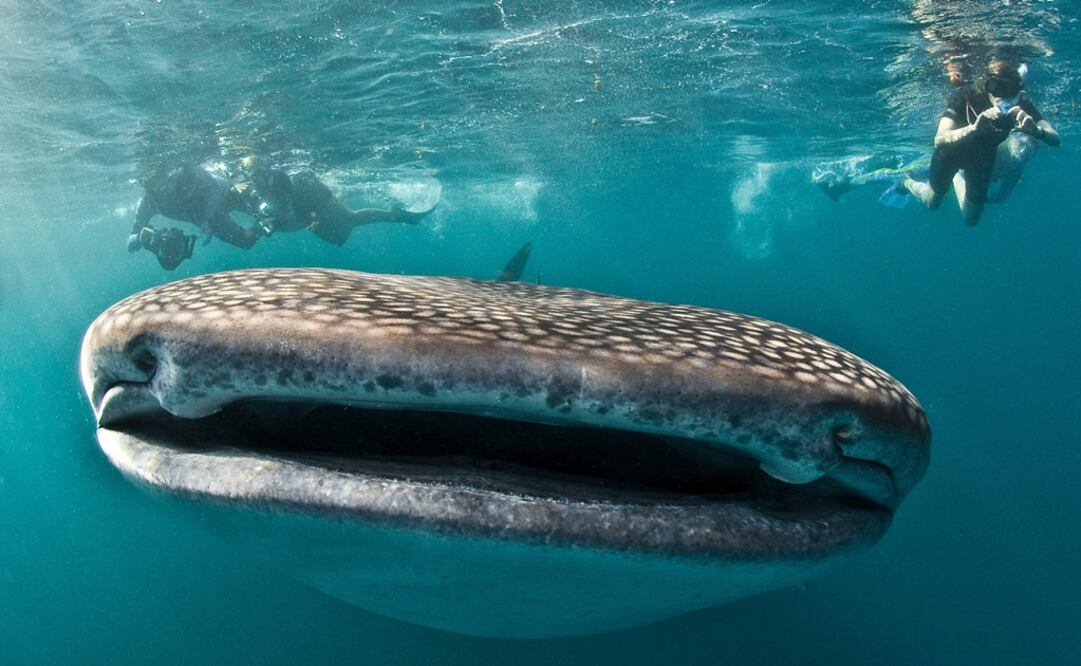Más Información

La narconómina de "El Mencho": claves, sueldos y flores para San Judas; esto ganaban pistoleros, "halcones" y "comandantes" del CJNG

Detención de "El Mencho" hubiera desatado violencia extrema o terrorismo para liberarlo, considera experto; inició guerra por territorio, dice

Acusan a René Arzate García, del Cártel de Sinaloa, de narcoterrorismo en EU; sube recompensa a 5 mdd por “La Rana"

“No había necesidad”; usuario exhibe y regaña a extranjeros en Oxxo robando tras la muerte de “El Mencho”

Reservaciones para ver a Shakira desde terrazas del Zócalo alcanzan 4 mil 500 pesos; paquetes incluyen menú o solo acceso
A human being’s fingerprint valleys and crests start to form during the sixth month of the intra-uterine life, remaining unchanged until the skin decomposes after death. Something similar happens with whale sharks , except that their “fingerprints” are located on the left side of their body, over their pectoral fin. Each specimen has a unique spot pattern that distinguishes them from others of the same species. Scientists have taken advantage of this natural trait to identify them.
Through this natural code , specialists have been able to monitor the shark’s presence and movements along tropical seas all over the world. The data is stored in a database which can be accessed through whaleshark.org , the largest whale shark library in the world. These photo-identification tools have increased our knowledge of this 60 million-year-old species that had mostly remained unknown until barely a decade ago.
Carmen Adriana Valera Bermejo, specialized in Priority Species at the National Commission for Knowledge and Use of Biodiversity (CONABIO)
, has stated that the identification software hosted by the whale sharks database is based on the mathematical and astronomical knowledge gathered by scientists from NASA . In fact, the recognition algorithms used to identify the sharks have been used on the Hubble telescope .
The International Whale Shark Day is celebrated every year on August 30th . Rafael de la Parra, founder of Ch’ook Ajauil , a civil association that receives donations to study the whale shark, as well as other species such as dolphins, rays, and sailfish, has indicated that this sea creature usually uses Mexican shores as a meeting point.
Most whale sharks can be found in Mexico at the Caribbean Sea , which is around 11 miles northeast of Isla Mujeres, in the state of Quintana Roo . Valera Bermejo expained that most specimens have been spotted swimming around Holbox Island , though there are also plenty of whale sharks in the Baja California peninsula .
The whale shark population has remained stable on this side of the planet. On the other hand, Valera Bermejo has stated that, in Mexico, whale sharks are considered a threatened species. “Whale sharks are not necessarily in danger of extinction, but the illegal trade of this animal is incompatible with the species’ survival. This is mostly due to the sale of whale shark fins in the Asian black market," the specialist stated.
dm
Noticias según tus intereses
[Publicidad]
[Publicidad]










